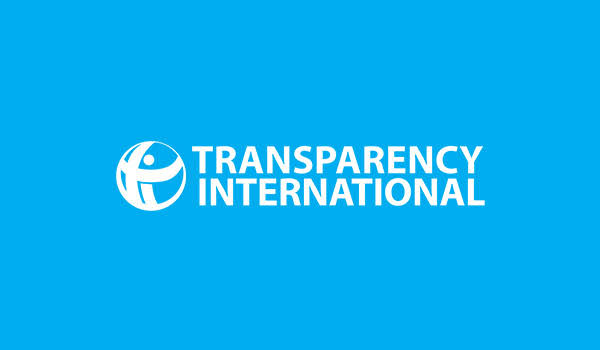News
Nigeria police, lawmakers, judges top most corrupt institutions in TI’s latest GCB report

The 10th edition of Transparency International’s Global Corruption Barometer, GCB, released on Thursday has shown the police, legislature and the judiciary are among the most corrupt institutions in Nigeria.
According to TI, corruption in African countries was hindering economic, political and social development. The GCB was conducted in several African countries.
Partnering with Practical Sampling International in Nigeria, TI sampled 1,600 people from April 26 to May 10, 2017.
The resultant data showed that the police topped the list of most corrupt institutions in the country at 69 per cent, followed by ‘Members of Parliament’ (60) and local government officials (55).
Others were government officials (54), judges and magistrates (51), business executives (44), presidency (43), non-governmental organisations (40), traditional leaders (35) and religious leaders (20).
According to the survey, 47 per cent of public service users had paid a bribe to the police in the previous 12 months, while 44 per cent had contributed to overall bribery rate in that period.
Read also: BAYELSA GUBER: Deputy Gov, SSG, CoS join race for PDP ticket
59 percent of those surveyed said government was doing a good job fighting corruption, while 49 percent disagreed.
The survey also indicated that 43 per cent thought corruption increased in the previous 12 months.
TI said: “Corruption is a major barrier to economic growth, good governance and basic freedoms, such as freedom of speech or citizens’ right to hold governments to account. More than this, corruption affects the wellbeing of individuals, families and communities.
“The 10th edition of the Global Corruption Barometer (GCB) – Africa reveals that, while most people in Africa feel corruption increased in their country, a majority also feel optimistic that they, as citizens, can make a difference in the fight against corruption.
“The report also found more than one in four people who accessed public services, such as health care and education, paid a bribe in the previous year. This is equivalent to approximately 130 million citizens in the 35 countries surveyed.”
TI also claimed that latest survey is the largest, most detailed survey of citizens’ views on corruption and their direct experiences of bribery in Africa. This, it said Incorporated the views of more than 47,000 citizens from 35 countries across Africa.
Join the conversation
Support Ripples Nigeria, hold up solutions journalism
Balanced, fearless journalism driven by data comes at huge financial costs.
As a media platform, we hold leadership accountable and will not trade the right to press freedom and free speech for a piece of cake.
If you like what we do, and are ready to uphold solutions journalism, kindly donate to the Ripples Nigeria cause.
Your support would help to ensure that citizens and institutions continue to have free access to credible and reliable information for societal development.






















